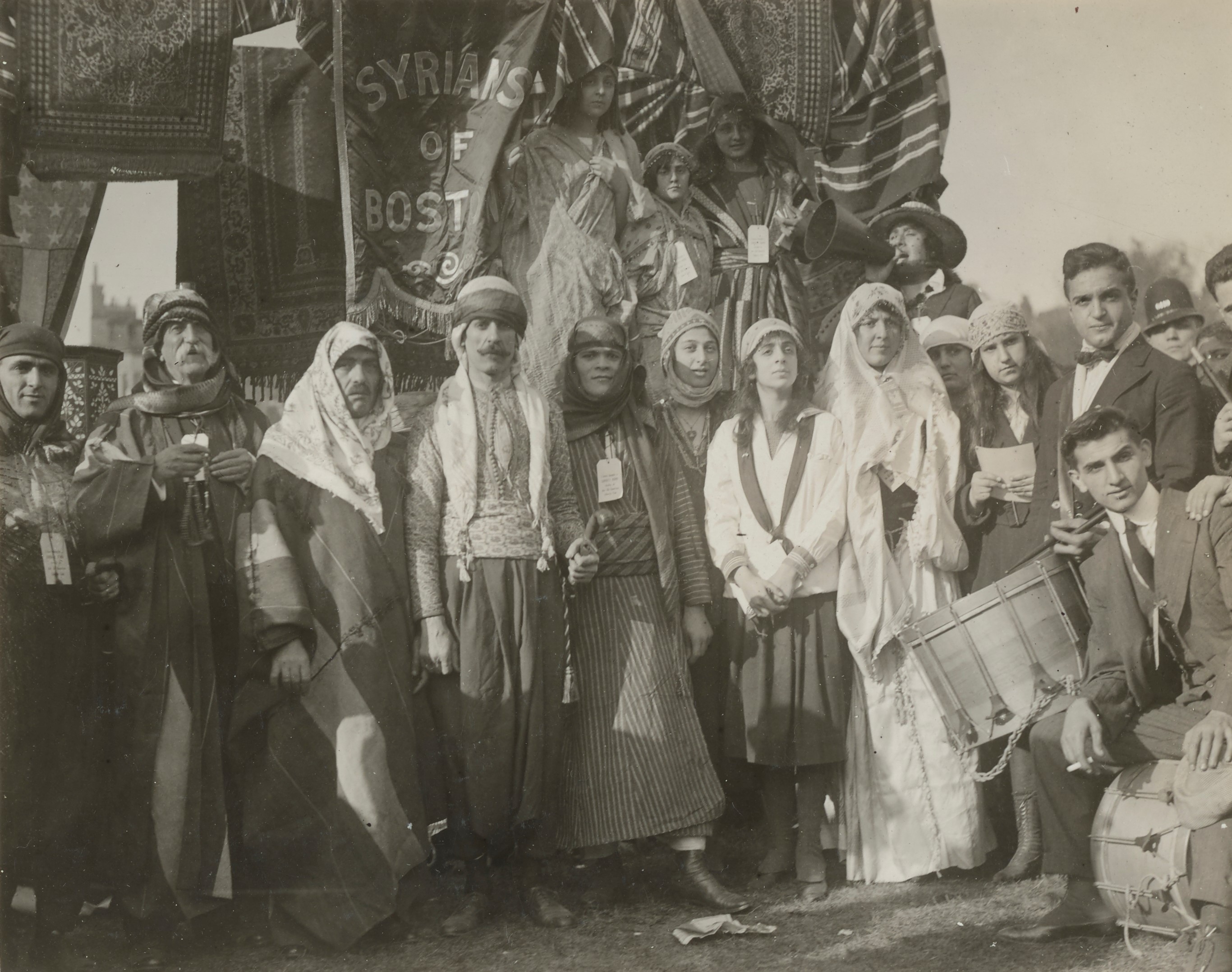Wandering Boston's Little Syria

MHS Event
Lydia Harrington, PhD, Post-Doctoral Fellow, Aga Khan Program for Islamic Architecture at MIT
Chloe Bordewich, PhD, Post-Doctoral Associate in Public History at Boston University Center for Antiracist Research
This is a hybrid event. FREE. The in-person reception starts at 5:30 and the program will begin at 6:00.
Boston’s Little Syria thrived between the 1880s and 1950s in today’s Chinatown and South End, yet few Bostonians are familiar with it. Drawing from photographs, property maps, interviews, and memoirs of Syrian and Lebanese Americans, this event and accompanying exhibition narrate the history of a neighborhood which is nearly invisible today. Immigrants fled blight and violence in Beirut, Mount Lebanon, and Damascus to arrive in Boston, where they peddled dry goods, made, and sold lace, labored in the Garment District, purchased apartments, opened restaurants and Arabic-language newspapers, attended church, and formed social clubs and charitable organizations. Residents of Little Syria lived, studied, and worked with neighbors of many backgrounds, notably fighting alongside Chinese Americans to protect their homes in the face of Boston’s Central Artery Project and urban renewal in the 1950s. The event will feature a multimedia presentation on the neighborhood’s history and a moderated discussion with panelists who will recount their families’ experiences in Little Syria and discuss how the community continues to thrive in other neighborhoods of Greater Boston.
Hybrid Event
The in-person reception starts at 5:30 and the program will begin at 6:00.
Masks are optional for this event.
The virtual program begins at 6:00 PM and will be hosted on the video conference platform, Zoom. Registrants will receive a confirmation message with attendance information.
